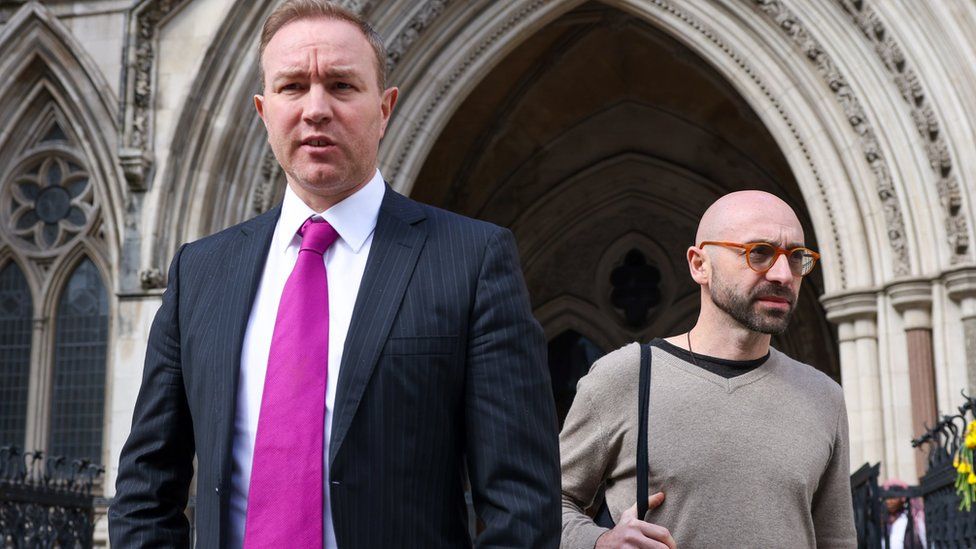 Image source, Getty Images
Image source, Getty ImagesTwo former bankers jailed for rigging interest rates must have their appeal heard by the Supreme Court, senior politicians have said.
Tom Hayes and Carlo Palombo were among 37 City traders prosecuted for rigging rate benchmarks Libor and Euribor.
They got out of prison in 2021 and the Court of Appeal dismissed a bid to overturn their convictions last week.
Conservative Sir David Davis and Labour's John McDonnell have said they believe the ruling was unfair.
Former Lord Chancellor Lord Mackay of Clashfern has also told the BBC he was "deeply concerned" about the basis on which the men were convicted.
Mr Hayes and Mr Palombo have said they will apply to the Court of Appeal for permission to take their cases to the Supreme Court.
The former traders were found guilty of manipulating Libor and Euribor, two benchmark interest rates that track what banks pay to borrow cash from each other.
Each day, 16 banks would submit an estimate of the cost of borrowing a large sum of cash from other banks and an average would be taken to get the Libor benchmark, with a similar process to get Euribor.
The cash desks submitting those rates would look at the interest rates at which other banks on the market were offering funds, which differed from each other by one hundredth of a percentage point or two, and select a rate from that range to submit.
Hayes and Palombo asked the cash desk to submit those rates "high" or "low" to help their bank's trades. They said that was normal commercial practice.
Their lawyers argued they were merely selecting from a range of accurate interest rates on offer on the market. They argued that the prosecution had offered no proof that they could not borrow at the quoted rates. Therefore there was no proof they had asked for anything false. The Court of Appeal dismissed the traders' appeal, saying they should only have quoted the cheapest interest rates available.
However, that ruling has sewn confusion. At the appeal hearing, Serious Fraud Office prosecutor James Hines told the defendants' legal team that it "was never part of our case" that banks must quote the lowest interest rate available.
Much of the evidence the SFO brought against the traders was requests for "low" rates. Those requests would appear to be entirely lawful based on the judges ruling.
'Nothing dishonest'
Lord Mackay said: "After taking a close interest in their cases, it didn't look like they were doing anything dishonest. They were doing their best as far as they understood."
Sir David said: "The judges have let a technical concern about contracts over-ride the far more important point, which is what these cases are supposed to be all about. Was what the traders did dishonest? And if you look closely enough, the answer is a clear "no".'
Mr McDonnell, called the convictions a "grave miscarriage of justice" and said he found the Court of Appeal judges' decision "bewildering".
In January 2022, a US court of appeal concluded traders did not break any rules and overturned all such convictions, leaving the UK as the only country where what they did remains criminalised.
UK Court of Appeal judges said the case which overturned all convictions in the United States, where former Deutsche Bank traders Matt Connolly and Gavin Black were fully acquitted, was irrelevant to the UK because it took a different approach to contract law.





